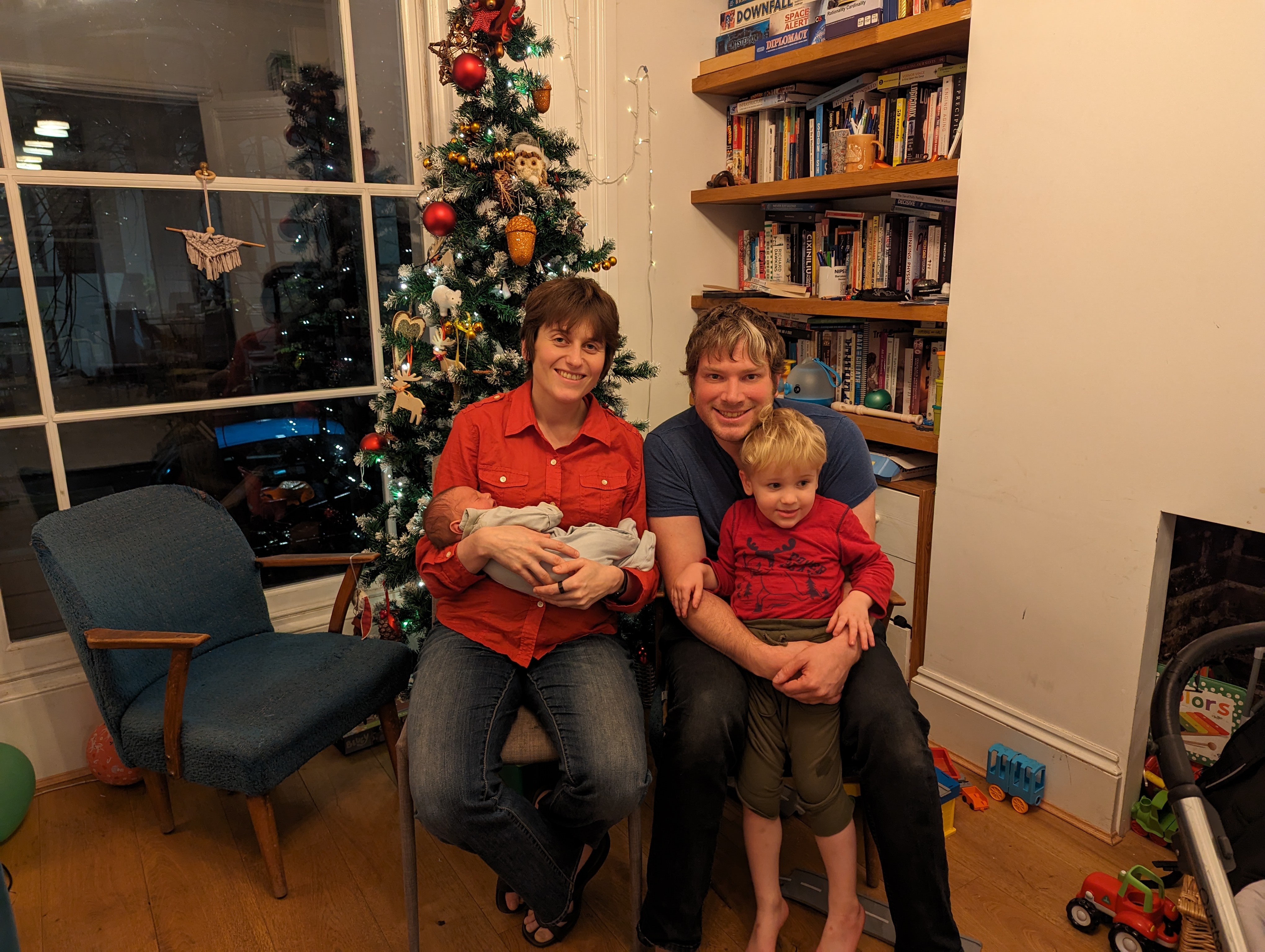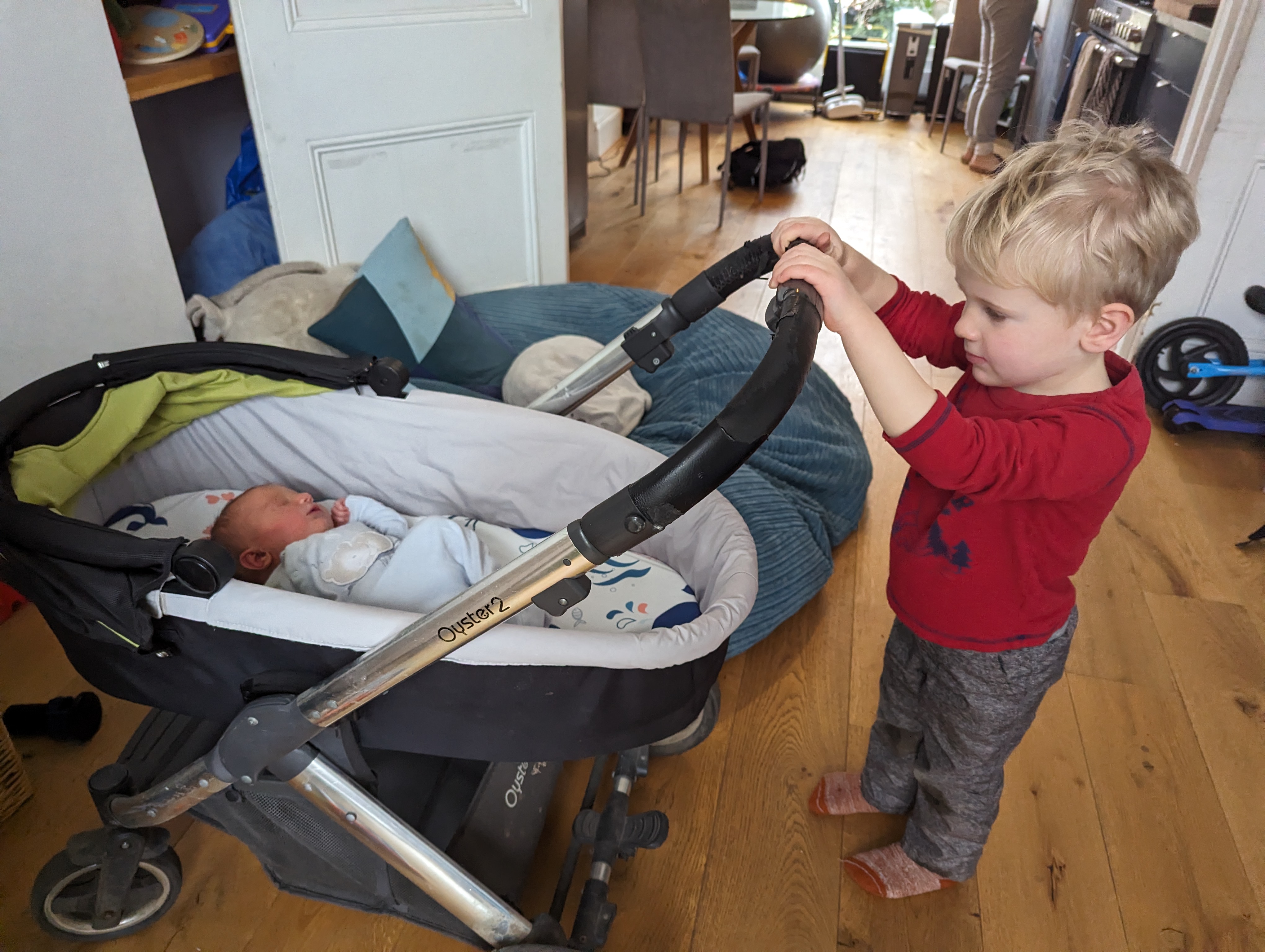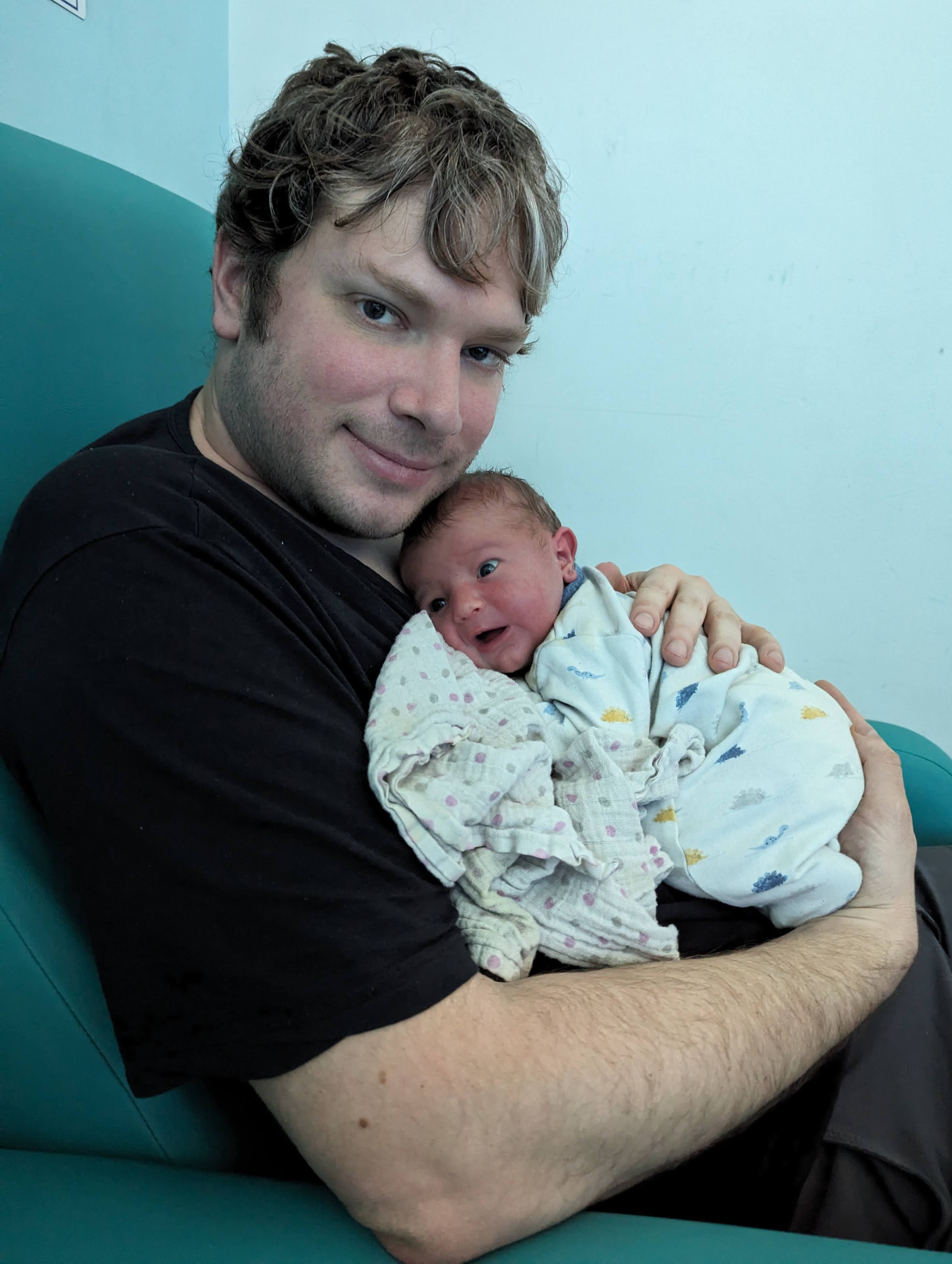This is an annual post reviewing the last year and setting intentions for next year. I look over different life areas (work, health, parenting, effectiveness, travel, etc) and draw conclusions from my life tracking data.
Overall, this year went pretty well (and definitely better than the previous two). Highlights include a second kid, hiking in Newfoundland, some parenting milestones (night potty training and stopping breastfeeding), and how iron deficiency can feel like burnout.
2023 review
Life updates
We received a special gift for New Year’s – Michael (“Misha”) arrived just in time to be born in 2023! Daniel is already getting the hang of rocking his brother and singing him lullabies.






 “Pride is not the opposite of shame, but its source. True humility is the only antidote to shame.”
“Pride is not the opposite of shame, but its source. True humility is the only antidote to shame.”